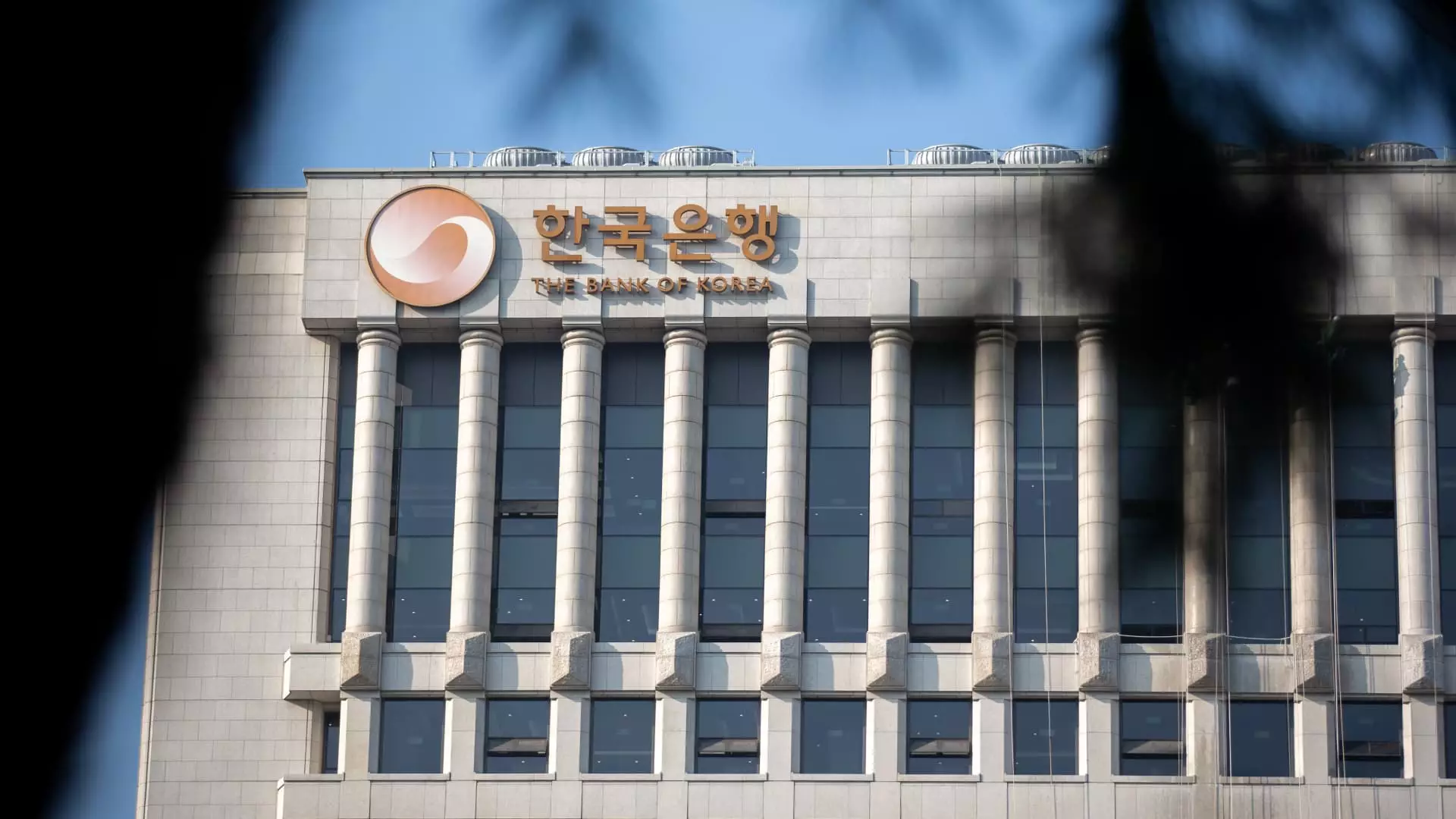South Korea currently finds itself at a crossroads where the intersection of political upheaval and economic uncertainty is creating an environment ripe for concern. The recent decision by the Bank of Korea (BOK) to cut interest rates by 25 basis points represents both a necessary response to troubling economic indicators and a reflection of the political chaos engulfing the nation. This reduction, now bringing rates down to 2.5%, is not merely an isolated monetary policy move; it signals a deeper malaise affecting South Korea’s economic landscape.
The backdrop for this cut is not merely a standard economic challenge. The country is grappling with a profound political crisis following the controversial presidency of Yoon Suk Yeol, whose attempts at imposing martial law were met with widespread backlash. This governance crisis has sown seeds of uncertainty among investors and consumers alike, leading to a stagnant economy characterized by subdued growth and escalating risks.
Tariffs: A Looming Threat on the Horizon
Compounding South Korea’s economic woes are the punitive tariffs imposed by the Trump administration, which have added another layer of difficulty. The 25% reciprocal tariffs, although temporarily suspended, loom large over trade relations between the U.S. and South Korea. This uncertainty only heightens the stakes for the impending negotiations—both the urgency and the complexity of which overshadow South Korea’s economic outlook.
The tariff discussions are not just about numbers; they represent the fragile state of international relations amid an election cycle that could redefine South Korea’s policies. As South Koreans prepare to head to the polls on June 3, the outcome will likely have immediate implications for economic strategy, including how to handle foreign relations and trade agreements. Observers have expressed skepticism about whether any new administration can swiftly navigate these treacherous waters.
The Economic Forecast: Contraction and Setbacks
As if the political storm wasn’t enough, the economic indicators paint a bleak picture. According to reports, South Korea’s GDP unexpectedly contracted by 0.1% in the first quarter, marking the first such decline since late 2020. The monetary policy board’s decision to cut rates reflects a recognition that growth is likely to “decline considerably.” Such rhetoric from the BOK is concerning—it indicates not only a downward shift in economic performance but a potentially lengthy struggle to return to stability.
While the central bank’s proactive stance on rate cuts aims to cushion the impact of economic downturns, there’s an inherent danger in relying too heavily on monetary policy as a panacea. Rate cuts can only do so much if the root causes—political instability and uncertainty in trade—remain unresolved. The BOK adjusting its GDP forecast down to just 0.8% for 2025 from an earlier projection of 1.5% is nothing short of alarming and illustrates the need for a robust and comprehensive approach to recovery.
Consumer Spending and Future Prospects
Economists like Gareth Leather from Capital Economics have pointed to the upcoming presidential election as a potential catalyst for “much-needed fiscal stimulus.” However, one must approach such forecasts with caution. While there is hope that consumer spending may receive a much-needed boost, the reality is that this alone may not suffice to counterbalance the ongoing slump in the property sector or the disruptions affecting exports.
Resilient consumer behavior is applauded during economic recovery phases, but it can’t replace the structural issues currently plaguing South Korea. As policymakers step into a critical leadership role in the aftermath of the election, they will need to devise strategies that extend beyond comforting rhetoric. Strengthening trade relationships and restoring consumer confidence will be crucial.
The Reality of Economic Dissonance
South Korea stands on the precipice of significant economic and political challenges. While rate cuts may create fleeting enthusiasm in financial markets, they cannot mask the shadow of political upheaval that clouds the nation’s economic forecasts. Leaders must acknowledge that short-term fixes will not restore confidence among consumers or investors in a country marred by political disarray. The future of South Korea’s economy will rely heavily on a unified vision that embraces stability and strategic long-term planning—something the country desperately needs right now.


Leave a Reply